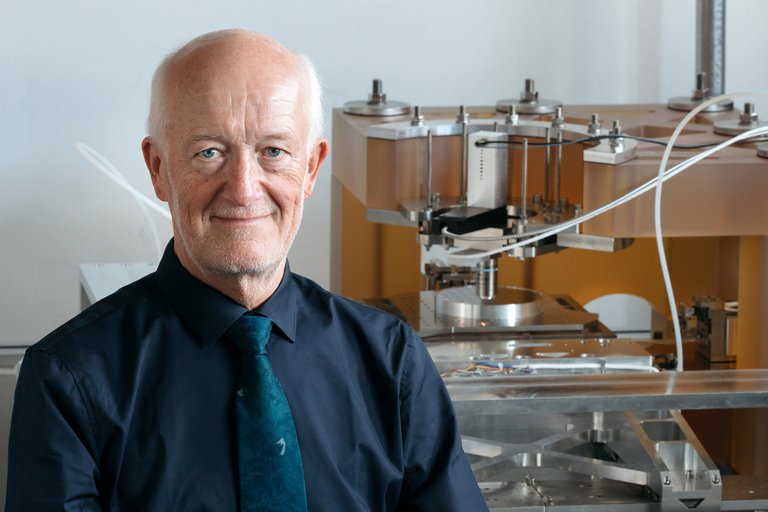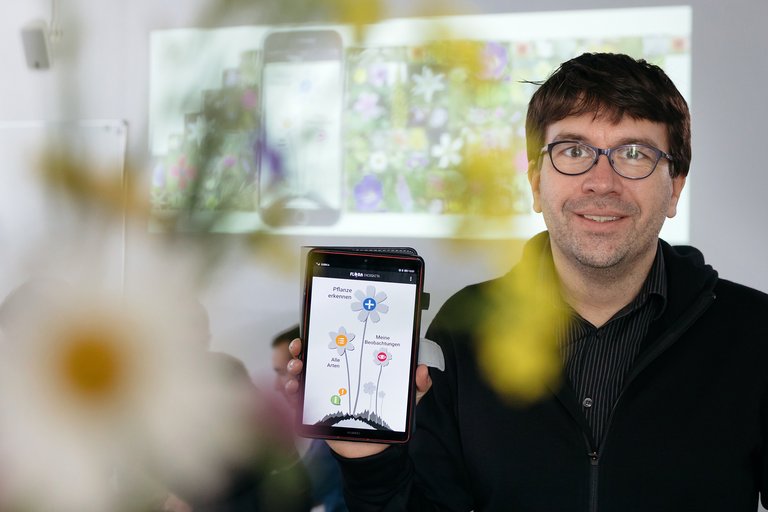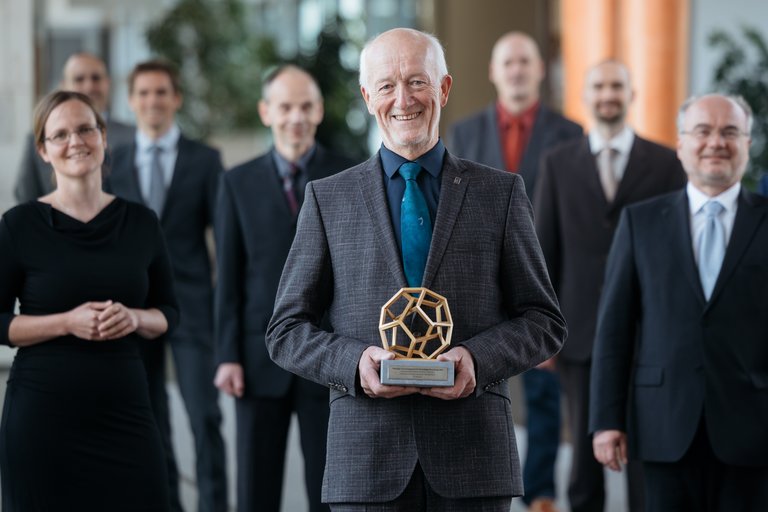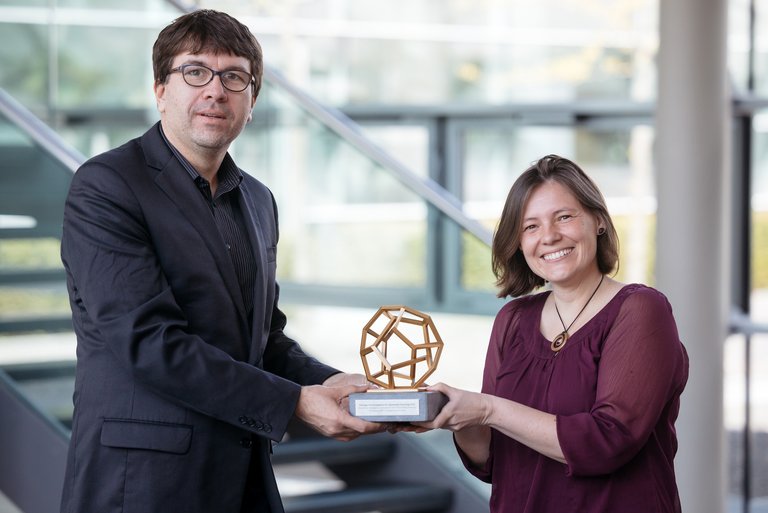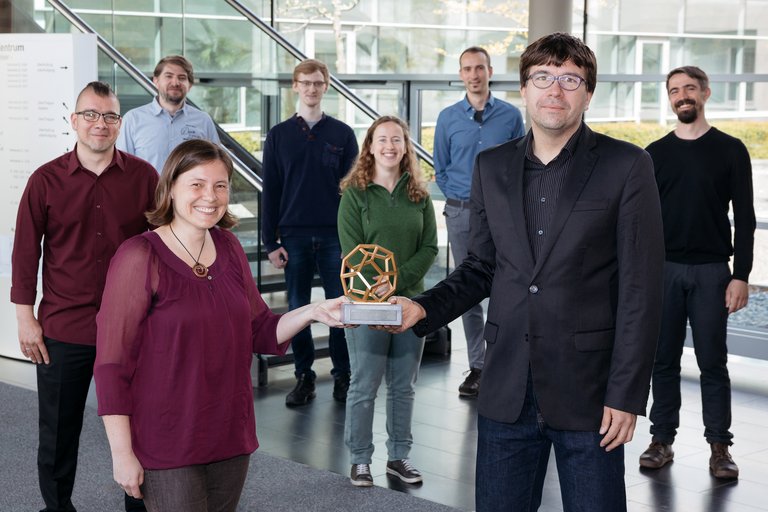Scientists from TU Ilmenau have received both Thuringian Research Awards in 2020: the one for basic research and the one for applied research. Prof. Eberhard Manske and his research team were successful with their basic research on "subnanometer measurement methods of the highest precision with a measurement range of ten decades". They are thus enabling novel production processes of unrivalled precision worldwide. Prof. Patrick Mäder and his research team received the Thuringian Research Award for Applied Research on the topic of "Artificial Intelligence Revolutionizes Plant Identification". Together with the Max Planck Institute for Biogeochemistry in Jena, the Ilmenau scientists developed the world's first app for recognizing plants with an intelligent identification process. It has already been downloaded one million times since its publication.
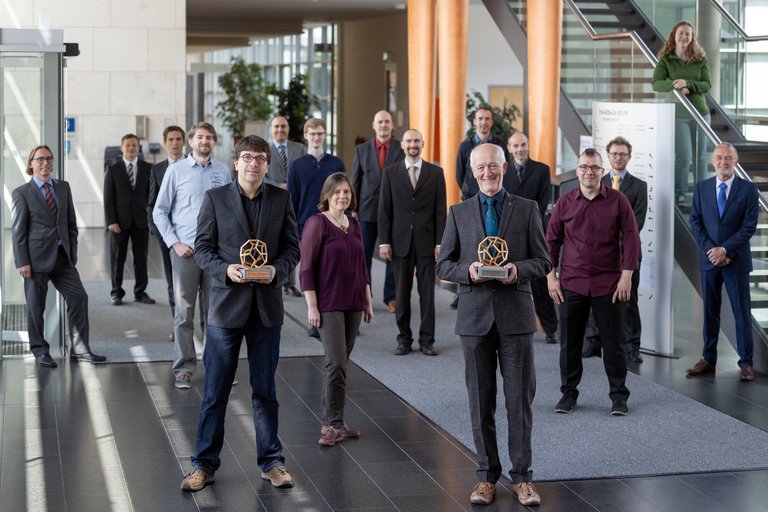
Thuringian Research Award 2020: both prizes went to TU Ilmenau
Scientists from TU Ilmenau have received both Thuringian Research Awards in 2020: the one for basic research and the one for applied research. Prof. Eberhard Manske and his research team were successful with their basic research on "subnanometer measurement methods of the highest precision with a measurement range of ten decades". They are thus enabling novel production processes of unrivalled precision worldwide. Prof. Patrick Mäder and his research team received the Thuringian Research Award for Applied Research on the topic of "Artificial Intelligence Revolutionizes Plant Identification". Together with the Max Planck Institute for Biogeochemistry in Jena, the Ilmenau scientists developed the world's first app for recognizing plants with an intelligent identification process. It has already been downloaded one million times since its publication.
Thuringian Research Award for Basic Research 2020
With the Thuringian Research Award for Basic Research 2020, the Free State of Thuringia honored the research work of Prof. Eberhard Manske, head of the Group Production and Precision Measurement Technology, and his team of researchers in the frontier areas of nanomeasurement and nanopositioning technology. They succeeded in controlling the smallest objects in ever larger spatial areas with extreme accuracy and maximum positioning speed. The nanopositioning and nanometre measuring machines developed in Ilmenau achieve a resolution of only 20 picometres, or 20 billionths of a millimetre, in a large measuring range of 200 millimetres - no device in the world is more accurate.
The basic research of the scientists around Prof. Manske enables the most precise measurement of micro- and nanostructures for the most diverse applications in the future fields of nanotechnologies, micromechanics and precision optics, for example for nanoelectronic components, micro- and nanostructured surfaces with novel functions and micro- and precision optics, which in turn enable the production of numerous nanotechnical and optical systems.
Thuringian Research Award for Applied Research 2020
Prof. Patrick Mäder, Head of the Group for Software Engineering for Safety-Critical Systems, and his research team, as well as Dr. Jana Wäldchen from the Max Planck Institute for Biogeochemistry Jena, were honored with the Thuringian Research Award for Applied Research 2020 for the development of the app "Flora Incognita". Thanks to the latest artificial intelligence methods, the application is extremely simple: the user takes a photo of an unknown plant with a smartphone, which is then automatically captured by intelligent recognition software developed at TU Ilmenau and checked for characteristic features within a few milliseconds. In well over 90 percent of cases, the plant species is correctly identified with this or another image.
If, at the system's request, the user takes further specific pictures of the unknown plant - leaves, stem, inflorescence, etc. - plant characteristics can be matched even more precisely. The location where the user took the picture also helps to identify the plant more precisely via its distribution region. The system's artificial intelligence is "trained" with over two million plant images of the nearly 5000 supported species. In order to cope with such a huge amount of data, the scientists use the latest hardware and software and continuously develop it further. In this way, the image recognition achieves a determination accuracy that experts describe as unsurpassed.


